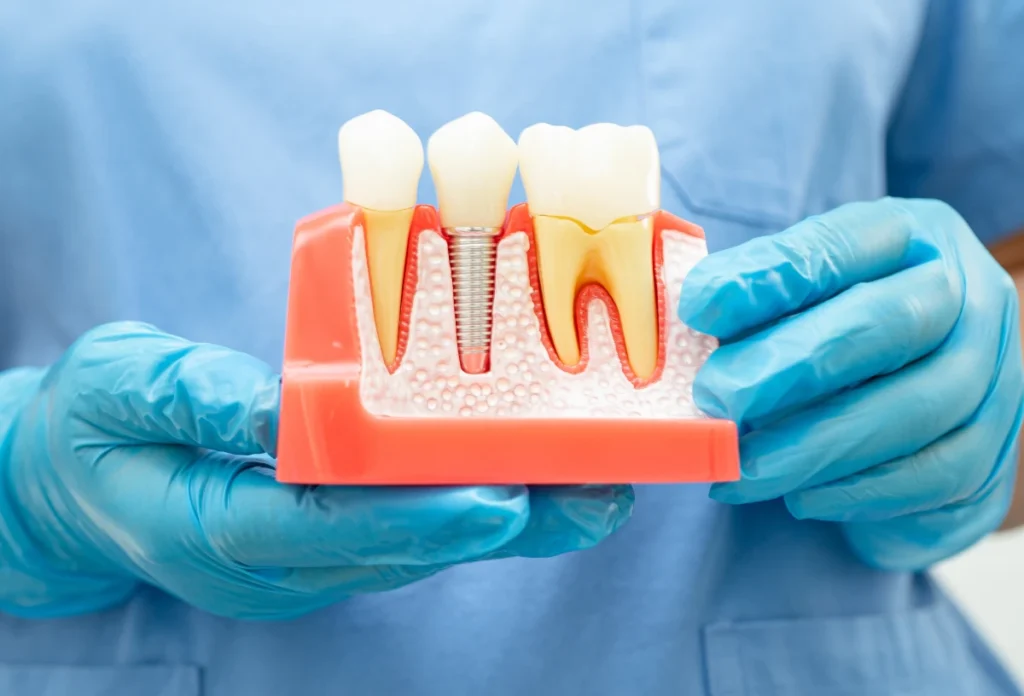Updated: 1/29/2020
Remember Violet Beauregarde from Willy Wonka and the Chocolate Factory? While your child surely isn’t bound to the fate of Violet Beauregarde—being rolled away by Oompa-Loopas for blowing up like a balloon after eating a tempting piece of bubble gum—there are dangers to frequent gum chewing, especially when it comes to your child’s dental and overall health.
Dental Side Effects
1. TMJ (Temporomandibular Joint Disorder): Jaw muscle imbalance and TMJ are two of the possible side effects of frequent gum-chewing. If you believe your child might have TMJ, talk to their dentist. Symptoms of TMJ include:
-
-
- Pain or tenderness in the jaw, neck, face and shoulders. You can also see this in or around the ear
- A jaw that locks or gets stuck when opening or closing
- Not being able to open your mouth very wide
- Clicking, popping or grating sounds in the jaw
- Having a hard time chewing
-
2. Tooth Damage: Tooth damage is often caused by the amount of sugar in gum. Sugar contributes to tooth decay, which can be detrimental to dental health.
3. Damage from Fillings: If your child has mercury fillings, encourage them to avoid chewing gum. Chewing gum can cause mercury fillings to release its mercury into the body, which can be hazardous to your child’s health.
Health Side Effects
1. Headaches: Another side effect of gum-chewing is headaches, especially in teenagers because they chew so much of it. Studies have found a correlation between gum-chewing and headaches in teens. Researchers believe this is a result of tension in the jaw due to chewing gum and exposure to aspartame, which is found in gum.
2. Junk Food Cravings: While many people chew gum hoping that it will distract them from their junk food cravings, research has shown that it actually does the opposite. People who chewed gum frequently were found to eat less nutritious foods than those who didn’t chew gum.
3. Gastrointestinal Problems: Chewing gum can trick the body into thinking it’s about to get food when it actually isn’t. This can confuse your digestive system, causing gastrointestinal problems. Artificial sweeteners that are found in gum can also cause stomach problems.
Steps to Healthier Gum-Chewing
1. Choose ADA-approved gum.
As you are trying to help your child reduce his/her gum-chewing habits, choose chewing gums for them with the ADA Seal of approval because they’re much better for their teeth. To receive the ADA seal of approval, companies must provide scientific evidence that their chewing gum:
-
-
- Reduces plaque acids
- Promotes remineralization of tooth enamel
- Reduces cavities
- Reduces gingivitis
- Is safe to oral tissues
-
And while this isn’t a requirement, all ADA-approved gum is sugarless.
2. Reduce sugar–intake. If you reduce how much sugar your child eats each day, you’ll help them lessen their cravings for sugar, which will also decrease their cravings for gum.
3. Chew gum longer. Chewing a piece of gum for a longer amount of time will reduce the amount of gum chewed in one day, lessening the negative effects.
4. Decrease the pieces of gum chewed a day. Cut back on how much gum your child is allowed to have each day, particularly if they have a gum-chewing addiction.
5. Replace gum with healthy food substitutes:
-
-
- Sunflower seeds
- Fennel seeds
- Water
- Parsley
- Mouthwash: if your child chews gum for fresher breath, substitute with mouthwash
-
Conclusion
It might be tough to break this gum-chewing habit—clearly Violet Beauregarde wasn’t able to—but your child’s dental health and overall health will thank you for it.
Finally, it’s important to keep in mind that chewing gum some of the time can actually be good for your dental health, particularly if you’re prone to dry mouth. Chewing sugarless gum increases saliva flow, which helps fight against tooth decay. However, most gum-chewers aren’t chewing sugar-free gum, and they aren’t chewing gum in moderation. Following the helpful steps listed above will limit how often your child is chewing gum, which can greatly benefit them.
What ways have you found helpful for breaking your child’s gum-chewing habit?







